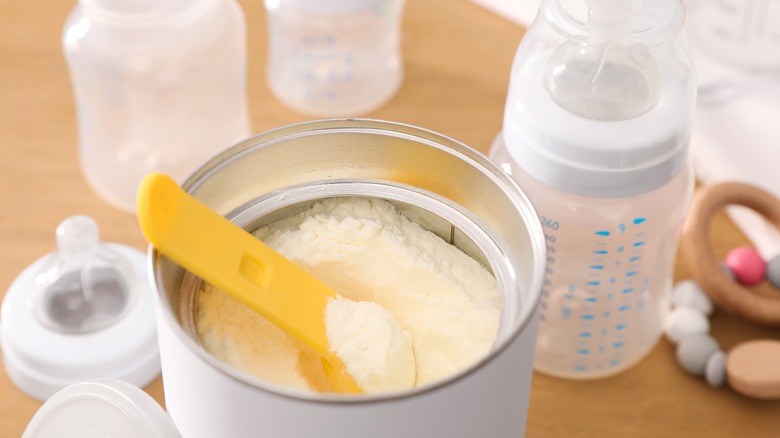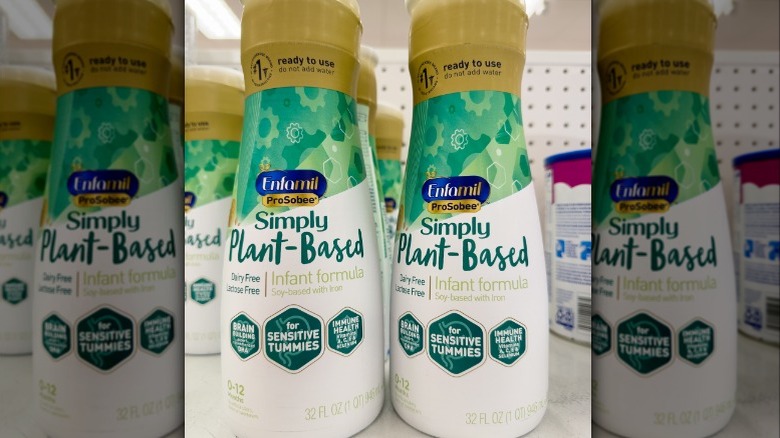Bacteria Risk Prompts Recall Of 145,000 Cans Of Plant-Based Enfamil
The struggles for parents feeding babies with formula is far from over — especially after Enfamil issued a recall of 145,000 cans of one of its specialty formula products on February 20. According to CNN, Enfamil's parent company, Reckitt, expressed concern that two batches of its Enfamil ProSobee Simply Plant-Based Infant Formula — a specialty, soy-based baby formula meant for children who are lactose intolerant or come from families with special dietary restrictions — could be contaminated with Cronobacter sakazakii bacteria (the same contaminant that sparked the nationwide formula shortage last year when it was discovered at rival company Abbott Nutrition's Sturgis, Michigan manufacturing facility).
The CDC notes that Cronobacter bacteria can thrive in dry foods, like powdered formula and can be especially dangerous for infants and adults with weakened immune systems. Babies who ingest it can develop fever, seizures, and meningitis, which can be fatal. The Abbott recall was triggered by the deaths of two infants and the sickness of two more linked to the bacteria.
Currently impacted products
Reckitt emphasizes that its current recall of the ProSobee formula, which impacts 149,000 12.9-ounce cans of the product, is being made out of an abundance of caution. CNN reports that most tests of the product have been clear and no illnesses have been reported, though there was a risk of cross-contamination in the manufacturing facility due to materials from a third-party supplier, whose contract has been ended.
Impacted cans were produced in August and September 2022 and distributed throughout the U.S., Puerto Rico, and Guam. They have a use-by date of March 1, 2024 as well as manufacturing codes ZL2HZF or ZL2HZZ. If consumers discover they purchased one of the cans, they are advised to dispose of it or return it to the store for a refund. They can also reach out to the FDA with questions.
While the risk is low and the impacted number of cans is relatively small compared to the damage done by the contamination in the Abbott plant in 2022, an additional recall is likely to cause market setbacks and significant problems for parents who rely on formula, as the fallout from the 2022 recall is still being felt around the country, especially in low-income communities. A recent report from The 19th* notes that 16% of families were still struggling to find formula in local stores in January, and that chains like CVS and Target still had limits on how much could be bought at once to guarantee it stays in stock.

